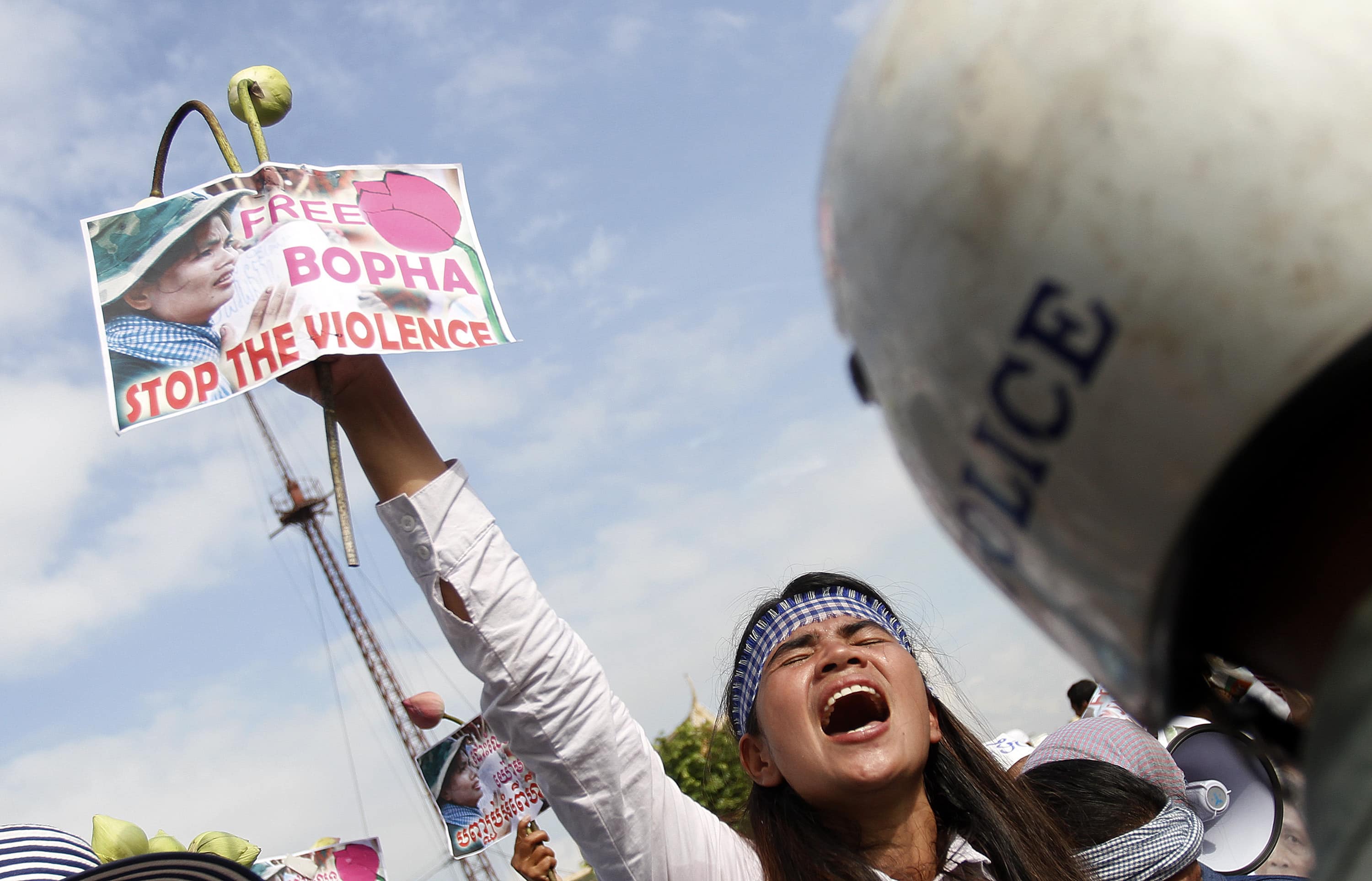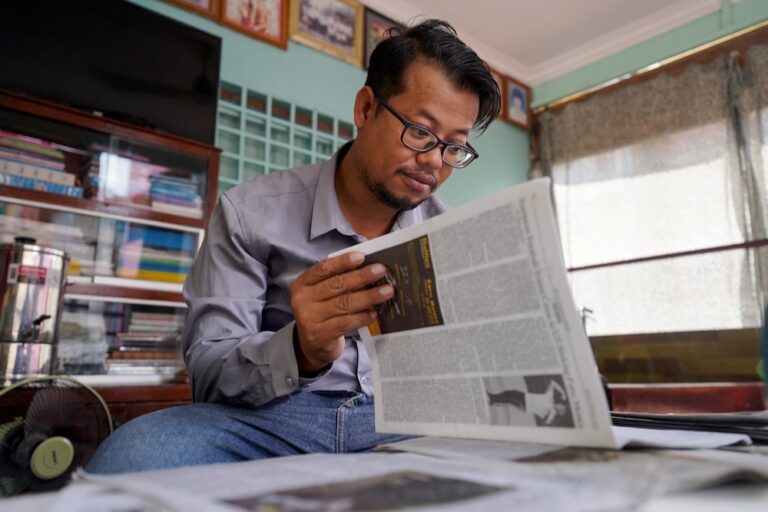Land rights activist Tep Vanny was among 13 women who were imprisoned in 2012 for protesting against the draining of a formerly picturesque lake in Cambodia and the forcible displacement of thousands of residents living on the water's edge. Now free, she remains at the forefront of the movement despite further arrests, constant threats and surveillance.
In a video for the Vital Voices Global Leadership in Public Life Award, in 2013, land rights activist Tep Vanny said:
Boeung Kak Lake was a large urban wetland in the Cambodian capital, Phnom Penh. Its waterside cafes and restaurants attracting tourists provided a living for local residents. In 2007 came the announcement that the lake had been sold for U.S. $80m to a Chinese company that would drain the lake, filling it with sand, with plans to build an elite residential area. By 2010 90% of the lake had been filled, and over 3,000 residents evicted, forced to resettle to the city outskirts. The environmental impact has led to flooding risks and the disappearance of fish and agricultural land on the lake’s banks that had been an important source of income for the local community.
With no rights to the land, those who lived by the lake struggled to hold onto their homes and were compelled to accept inadequate compensation payments. Inevitably this led to protests and, in May 2012, 13 women – ranging from 25 to 72 years in age – were each sentenced to 2 ½ years in prison for their part in the demonstrations, after a trial that lasted just three hours. Among them was Tep Vanny, already a lands rights veteran having been arrested on at least two occasions in the previous year for her part in the protests. The Boeung Kak 13, as they came to be known, were released a month later following an intense campaign inside and outside Cambodia.
True to form, on her release Tep Vanny went straight back into campaigning. In January 2014 she was among five women who were briefly arrested for demonstrating for the release of another land rights activist in the face of a blanket ban against all protests. Just three days later, Tep Vanny went to Geneva to observe UN Council on Human Rights scrutiny of how Cambodia was meeting its human rights commitments. Responding to the Cambodian government delegation’s dismissal of concerns raised by NGOs and other states alike, Tep said: The authorities have continually lied to us, arrested and beaten us, but the pain is now stronger in seeing them come before the entire international community with the same lies. In that moment, I wanted to stand up and shout out the truth, but instead I had to suffer quietly as I watched on.”
However, Tep Vanny did not remain quiet. In November 2014 she was arrested again, this time with 10 other protesters. They were each summarily sentenced to one year in prison for ‘traffic violations’ – blocking a road with a bed frame – during a protest. They were freed five months later under a royal pardon in April 2015.
Tep Vanny has earned several awards in recognition of her tenacious pursuit for justice. Among them was the prestigious 2013 Vital Voices Global Leadership in Public Life Award, granted to women who have made a difference to their communities. In a video accompanying the award she said: We are housewives and workers. We don’t have the power of politicians or police. We don’t have protection from Kangaroo Courts. We have each other.
[Last updated: 2 November 2015]
People gather outside Catalonia’s high court as regional acting President Artur Mas arrives for questioning over his suspected role in holding a poll in Barcelona, Spain, 15 October 2015
We will stand up. We will speak. We will be seen. We will be heard. And if ever we are silenced, tell our story.
In this 22 April 2017 file photo, members of Pakistani civil society demonstrate against the killing of Mashal Khan, a student at the Abdul Wali Khan University in the northwestern city of Mardan
is a loan fund to assist refugees through a difficult financial time or to provide funding for a course or equipment that would greatly help refugees in getting on with their lives at a time when other sources of funding are not available to them.



